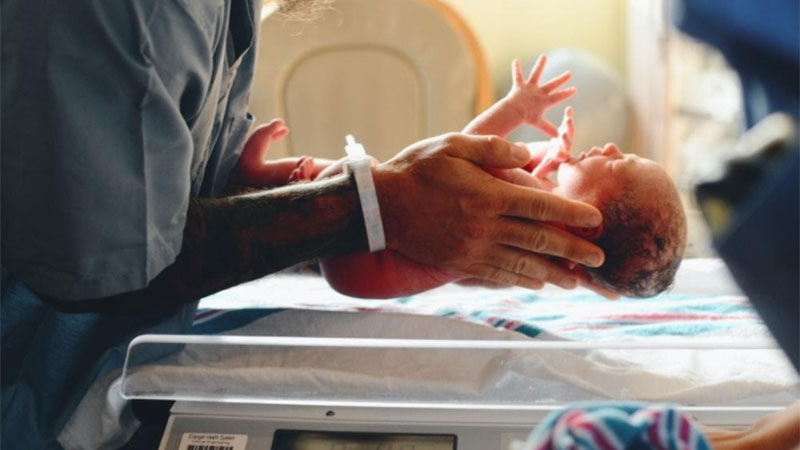Birth Injury Compensation Claims – Important Aspects to Understand
Bringing a child into the world is a life-changing moment – it’s stressful, filled with all sorts of emotions that can’t be entirely understood, and, above all, intense. This is why things need to go as smoothly as possible so that the parents and the child are not subject to any additional stress.
One of the biggest fears parents have when it comes to the birth of their child is a birth injury that can have long-lasting consequences. When this happens as a result of negligence or mistake made by a doctor, nurse, or midwife – the people supposed to take care of both the mother and child – it has that much more of an impact on the parents’ mental wellbeing.
Birth injuries can happen to both the mother and child and while some of these injuries may, unfortunately, not be avoided, on many occasions, they can happen as a result of malpractice. When this happens, the child and parents may be entitled to file a birth injury compensation claim.
A birth injury is, put simply, any sort of harm caused to the child or mother during labour and birth. Minor injuries, such as bruises or swelling, happen quite frequently and can’t be entirely avoided by the doctors, but they heal in a few weeks with no repercussions. Issues arise when more severe birth injuries happen as a result of medical negligence and can gravely impact the life of the mother or baby.
If you are going through a similar situation, we understand how difficult it can be and that the last thing you want to think of is injury compensation, but this is actually a very important step in finding justice for what has happened. To make the process less daunting, we recommend talking to a personal injury lawyer such as UK Law, but until you get the time and mental strength to do so, here are a few aspects you should be aware of in case of a birth injury compensation claim.

Image source: https://unsplash.com/photos/I0ItPtIsVEE
Most common types of birth injuries
Birth injuries can vary in both severity and nature, depending on the clinical errors that led to them. While giving birth is known to carry risks for both the mother and child, hospital staff should be the ones taking all the necessary precautions to minimize these risks. If this does not happen, their negligence can lead to significant injuries to both the mother and child.
Examples of birth injuries to mothers:
- Bladder and bowel injuries
- Birth injuries while using a forceps or vacuum
- Improper stitching that leads to infections
- Placental abruption due to negligence
- C-section trauma
- Internal damage
- Nervous shock due to trauma
- Anaesthetic mismanagement
Examples of birth injuries to babies:
- Cerebral palsy
- Fractures
- Cuts
- Muscular injuries
- Erb’s palsy
- Brain injuries
What qualifies as a valid reason to make a claim?
As mentioned above, a birth injury is any form of injury that has been caused to the mother and/or child during labour and birth due to the negligence of the medical staff. It may be that the doctor failed to react at a specific moment or that they made a mistake that questions their competency, but if the injury was a direct result of their breach of duty, it is regarded as a birth injury, and you are entitled to compensation.
Examples of clinical errors that can result in birth injuries include:
- Failure to properly assess the conditions of the child or mother
- Poor care during labour and delivery
- Improper medication
- Mishandling equipment
- Failure to prevent, identify or treat conditions
In court, breach of duty is determined using the Bolam test, but causation is determined using the balance of probability. Balance of probability refers to the fact that it must be more probable than not that the harm would not have occurred if the breach of duty had not happened.
Who can make a birth injury claim?
Birth injuries can be immediate and obvious, such as in the case of a cut, but they can also develop after days, weeks, or even months, as is the case for cerebral palsy caused by injury to the brain during birth. In many cases, this condition can only be diagnosed when the child is sufficiently grown, which can take months or years after birth.
If the mother suffered an injury, she is entitled to make a claim for herself. If the child was the victim, parents can make a birth injury claim any moment after birth and up until the child turns 18. After the age of 18, the child is able to make a claim on their own up until three years after becoming an adult.
There are certain circumstances that can influence the time limit, such as the individual’s mental capacity. This is why it is best that you contact a lawyer as soon as possible to ensure the claim is made in a timely manner.
How much compensation am I entitled to?
Many individuals wonder how much compensation they will receive if their case is successful, but there is no such thing as a predetermined sum. Because each case is unique, the amount of compensation you are entitled to will be determined based on the injuries and suffering you have suffered.
After properly assessing the injuries and their impact on the life of the victim, the attorney can calculate the damages and provide an approximate answer that includes general as well as special damages.
Compensation can cover general damages, which includes the physical and psychological trauma caused by the event, as well as financial support for treatment, medication, rehabilitation, and necessary home adjustments. If the event results in lost earnings, such as one of the parents losing their job, compensation can also cover this.
Based on data we have gathered, here are some approximate pay-outs:
- Organ damage or injury – between £3,000 and £95,000, depending on the organs affected and severity of the injury
- Minor head injury – between £1,500 and £9,500
- Lowered mental capability – between £28,000 and £155,000
- Brain damage – over £145,000
- Cerebral palsy – over £200,000
- Psychiatric damage – between £1,750 and £37,000, depending, again, on the severity
- Post-Traumatic Stress Disorder after birth injury – between £2,000 and £72,000

